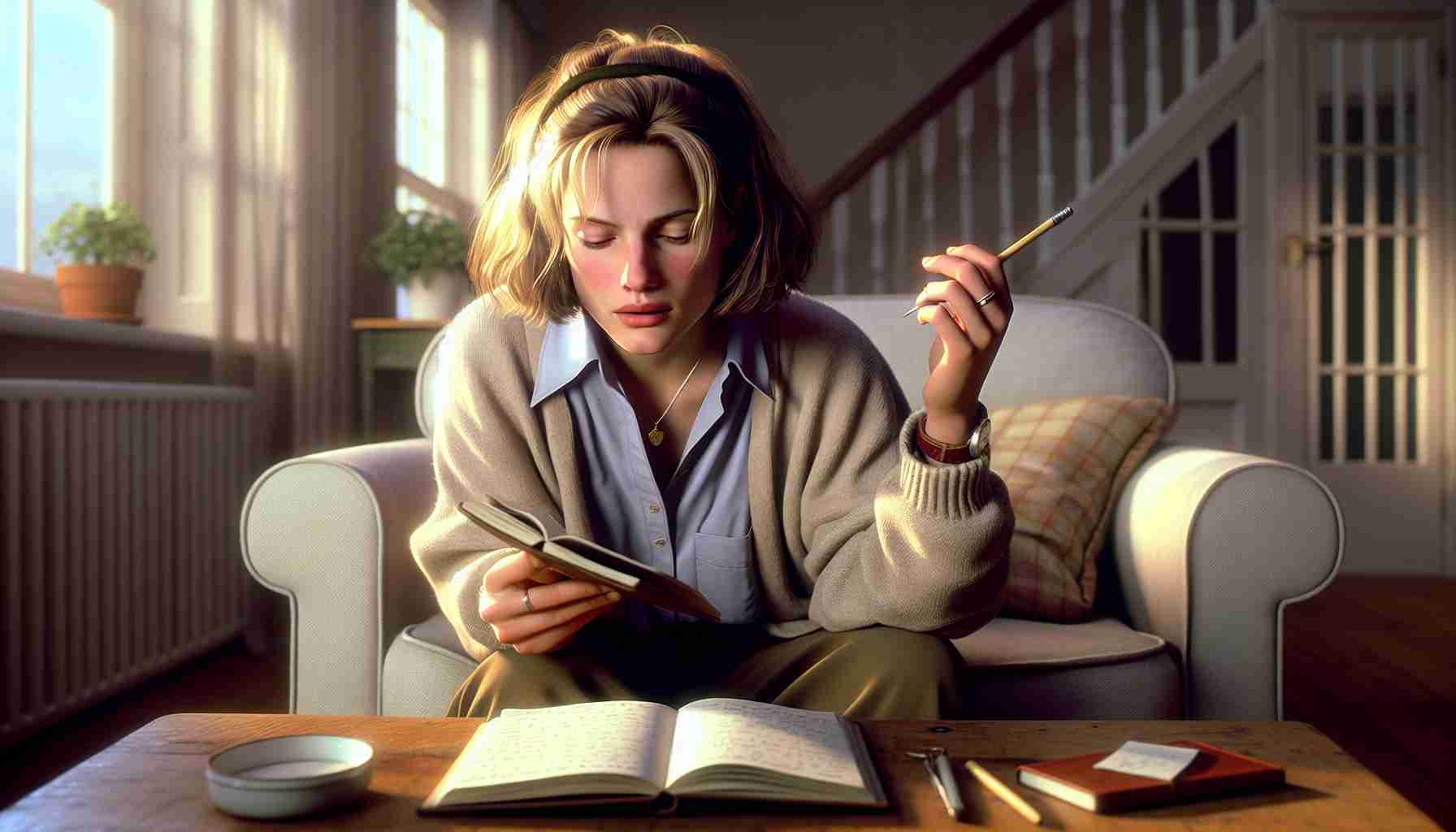- The fourth installment of Bridget Jones’ saga fails to capture the charm and humor of previous films.
- Humor feels forced, and the narrative stretches the boundaries of believability.
- Renée Zellweger’s portrayal oscillates awkwardly, making Bridget seem out of place.
- A few nostalgic moments, like nods to past advertisements and performances by Hugh Grant and Emma Thompson, evoke brief satisfaction.
- The main plot, involving a romance with a younger man, is predictable and uninspiring.
- A subplot introduced during a school trip seems far-fetched and lacks intrigue.
- The film suggests that some stories might be best left unexpanded or confined to their original forms.
The charm of Bridget Jones, once a seamless blend of clumsy candor and spirited humor, seemed to evaporate into an unconvincing haze with her latest on-screen attempt. This fourth installment, unfolding Bridget’s tangled escapades with a younger man, reveals a franchise stretching itself beyond measure. The beloved humor is diluted, replaced with a forced narrative that pushes the boundaries of believability and saddles viewers with unintended melancholia.
The movie stumbles over its own ambitions, likening its mismatched pairings to improbable antics—imagine the clumsy grace of a panda trying to charm a flamingo. Renée Zellweger’s portrayal flickers awkwardly between eccentric and disengaged, leaving Bridget appearing marooned in her opulent Hampstead home.
A few moments shimmer with the franchise’s past glory. A cheeky nod to the classic Levi’s swimmer TV ad ignites brief laughter, and Hugh Grant, as ever, breathes life into the charismatic yet rakish Daniel Cleaver. Emma Thompson also lingers in her brief yet delightful turns. Yet while these moments twinkle, they do little to resuscitate an otherwise flat affair.
Bridget’s new chapter—a whirlwind romance with the dashing but less-than-convincing Roxster—wades through a quagmire of predictability. Meanwhile, an unexpected dalliance during a school trip with Mr. Wallaker introduces a subplot that feels more improbable than intriguing.
Ultimately, the film serves as a reminder that some tales are best left to the pages of a cherished diary, where their stories remain vibrant and unspoiled. For devoted fans, it might be wiser to retreat to the cozy confines of Bridget’s earlier escapades, savoring the delightful nostalgia they so richly deserve.
The Untold Truth About Bridget Jones’s Latest Sequel: What You Didn’t Know
The Evolution and Impact of the Bridget Jones Franchise
Historical Context and Cultural Impact
The Bridget Jones franchise began with Helen Fielding’s novel “Bridget Jones’s Diary” published in 1996, which immediately resonated with readers worldwide for its relatable protagonist—a single thirty-something navigating life, love, and career. The subsequent film adaptations, starting with the 2001 movie, brought Bridget’s story to an even wider audience, capitalizing on the era’s shift towards more inclusive portrayals of women in media.
Over the years, Bridget Jones has become a cultural icon, symbolizing the imperfect but lovable modern woman. The character’s trajectory also coincided with broader societal changes, such as evolving attitudes towards singlehood and professional women, providing a mirror to contemporary social dynamics.
The Reception and Criticism of the Latest Installment
The latest film installment, as critiqued in the source article, struggles with its narrative, a common challenge for franchises extending beyond their prime. The issue of perpetuating familiar formulas is not unique to Bridget Jones; similar franchises have faced criticism for not adapting creatively over time, as seen with others like “Indiana Jones” and “Star Wars.”
From a performance perspective, Renée Zellweger’s portrayal still holds nostalgic value. However, the film’s reliance on her past charm rather than evolving her character could alienate newer audiences who demand nuanced storytelling in modern cinema.
The Global Influence of Bridget Jones
Bridget Jones’s appeal stretches far beyond the UK, touching audiences globally. This widespread resonance demonstrates the universal challenges and mishaps experienced in the pursuits of love, self-identity, and fulfillment. As such, adaptations and similar narratives have sprung up across various cultures, each resonating with local audiences while maintaining the underlying themes Bridget Jones represents.
Technology and Media Evolution Since Bridget’s Inception
The world has drastically changed since Bridget Jones made her first diary entry. From the dawn of social media to the explosion of dating apps, technology has transformed both how romantic relationships are initiated and perceived. This evolving landscape could provide a vibrant backdrop for future narratives, potentially reviving interest by aligning Bridget’s story with contemporary realities.
What Makes Bridget Jones Still Relevant Today?
While the latest film may struggle, Bridget Jones remains relevant due to the authenticity and relatability of her character. Her enduring appeal lies in her flaws and triumphs, striking a chord with audiences who see themselves in her escapades and dilemmas. This relatability is crucial for keeping characters timeless amidst changing societal norms.
Prospective Future for the Franchise
Moving forward, the Bridget Jones series has the opportunity to innovate by potentially tying into current social issues, diversifying its cast and narratives, or even venturing into premium TV series formats that allow for deeper character exploration. Exploring Bridget’s adventures or focusing on new characters within the same universe could breathe new life into the franchise.
The legacy and lessons of Bridget Jones provide a blueprint for balancing nostalgia with innovation, offering insights into maintaining cultural relevance in ever-evolving entertainment landscapes.
Related Resources
For more insights and information on similar topics, visit the official sites of these institutions:
– Penguin Random House
– BBC
– IMDb
